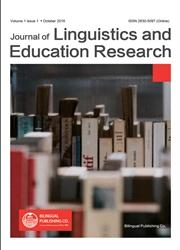The Netflix Translation of Humour from the Egyptian Vernacular Dialect into MSA: the Case of “el-Limby” and “Illy Baly Balak” Films
引用次数: 0
Abstract
Humour is the infallible and never-outdated medium for creating intimacy and collective understanding among peoples of versatile interests and, sometimes, conflicting attitudes. It is the moment of catching the humorous effect that counts. Humour creation is not easy because the factors that would trigger laughter vary from one person to another. Creating humour on an international level demands distinguished abilities, as it is hard to accommodate all the factors that would motivate diverse peoples and social brackets to laugh at the same time for the same reason, due to national, historical and cultural factors. The hypothesis is based upon the assumption that the world societies speak the same language with the same dialect. Yet, the situation gets complicated if translation problems and techniques are considered, and it turns to exigently complex when the source dialect differs from that of the targeted audience. However, the latter case has never been a problem for the Egyptian drama, as the entire Middle Eastern societies can transcend the dialect barrier. Notably, the vernacular dialects in the Middle East region are fundamentally diverse to extent that they are, sometimes, incomprehensible altogether. Recently, along with the growing hegemony of the online streaming forums as well as their attempt to globalise the streamed content to attract more subscribers, an active process of subtitling and dubbing are initiated. In the process, all the problems of translation, subtitling and dubbing came to the fore. The article discusses the Netflix intralingual subtitling/dubbing of the Egyptian comedies from the Egyptian vernacular dialect into MSA with reference to the famous and hilariously comic Egyptian films “el-Limby” (2002)[20] and “Illy Baly Balak [You-Know-Who]” (2003)[21] starred by the Egyptian actor Mohamed S’ad. The article also seeks to underline the influence of the Netflix subtitled/dubbed MSA content upon the Middle East region.Netflix将埃及方言幽默翻译成MSA:以“el-Limby”和“Illy Baly Balak”电影为例
幽默是一种绝对可靠且永不过时的媒介,可以在各种兴趣爱好的人民之间建立亲密关系和集体理解,有时还可以形成相互冲突的态度。捕捉幽默效果的时刻才是最重要的。幽默的创造并不容易,因为引发笑声的因素因人而异。在国际层面上创造幽默需要卓越的能力,因为由于国家、历史和文化因素,很难容纳所有能激励不同民族和社会阶层出于相同原因同时开怀大笑的因素。这一假设是基于这样一种假设,即世界社会用相同的方言说相同的语言。然而,如果考虑到翻译问题和技巧,情况就会变得复杂,当源方言与目标受众的方言不同时,情况就会急转直下地变得复杂。然而,后一种情况对埃及戏剧来说从来都不是问题,因为整个中东社会都可以超越方言障碍。值得注意的是,中东地区的方言从根本上讲是多样化的,有时甚至完全无法理解。最近,随着在线流媒体论坛的霸权不断增强,以及他们试图将流媒体内容全球化以吸引更多订户,一个积极的字幕和配音过程开始了。在这个过程中,所有的翻译、字幕和配音问题都凸显出来了。本文参考埃及演员Mohamed S’ad主演的著名搞笑埃及电影《el Limby》(2002)[20]和《Illy Baly Balak[你知道谁]》(2003)[21],讨论了Netflix将埃及喜剧从埃及方言翻译成MSA的语内字幕/配音。这篇文章还试图强调Netflix字幕/配音的MSA内容对中东地区的影响。
本文章由计算机程序翻译,如有差异,请以英文原文为准。
求助全文
约1分钟内获得全文
求助全文

 求助内容:
求助内容: 应助结果提醒方式:
应助结果提醒方式:


